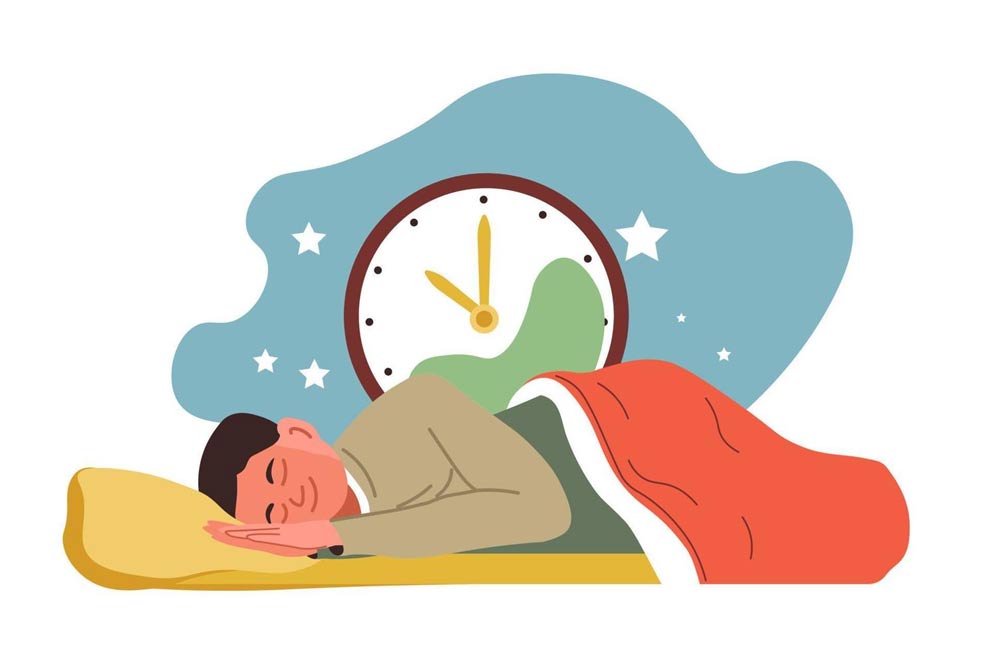Why is getting enough sleep the best habit for longevity?
Sleep is very important for our health. However, not everyone can get enough sleep. Here is why getting enough sleep is the best "key" to help you live longer .

You've probably read hundreds of articles over the years with helpful advice on creating healthy habits that improve your quality of life and increase longevity—everything from walking 10,000 steps a day and eating more plants to staying hydrated and keeping a gratitude journal.
While all of these are indeed healthy habits, they yield the most impressive results when combined with one important habit that is often overlooked. In fact, about 1 in 3 adults fail to meet the minimum in this category (a category as basic as eating, drinking, or breathing), and this deficiency can lead to a host of physical and mental problems, injuries, lost productivity, and a higher likelihood of premature death.
Getting enough sleep is the top habit for longevity.
The most important habit to start right away if you are not getting enough rest or sleep every day is to get 40 minutes of sleep every night.
'Sleep plays a critical role in every aspect of our physical, cognitive, emotional, and mental health,' says Shantha Gowda, a clinical health psychologist who is board certified in behavioral sleep medicine and created the first sleep health and circadian rhythm program for the U.S. Marine Corps Special Operations Command . 'Sleep deprivation adversely affects every organ system in the body .'
But not only that, many experts consider getting enough sleep to be the key to longevity, and research results support this theory.

How does sleep affect health?
Sure, getting enough sleep can improve your mood and help you cope with the demands of everyday life, but those tangible results are just the tip of the iceberg.
' Adequate sleep is important for maintaining genomic stability, reducing oxidative stress, and increasing telomere length, all of which are hallmarks of aging, ' says sleep and longevity expert Alka Patel, MBBS. ' Sleep is not just a passive state but an active, dynamic process that is critical for maintaining health and optimizing longevity .'
Additionally, she explains that sleep supports neuroplasticity, the brain's ability to change and rewire itself based on learning and experience, which is essential for cognitive health and memory consolidation. Additionally, sleep regulates hormones responsible for appetite, which in turn plays a role in maintaining a healthy body weight and reducing the risk of metabolic disorders.
Patel says research on the relationship between deep sleep and Alzheimer's disease from the University of California, Berkeley, offers some intriguing insights and suggests that non-REM slow-wave sleep, also known as deep sleep, may act as a protective factor against the memory impairments associated with Alzheimer's. The study found that people who slept more deeply had better memory function than those who slept less deeply.
The study also provided significant insights into the relationship between sleep and metabolic health, with a particular focus on how sleep deprivation can lead to insulin resistance. One study demonstrated that even a single night of partial sleep deprivation can cause insulin resistance across multiple metabolic pathways in healthy individuals.
Sleep quality and frequency may also help reduce all-cause mortality and cardiovascular mortality.

How much sleep do you really need?
The definition of 'adequate sleep' varies from person to person, making it impossible to set a number to strive for for everyone. The National Sleep Foundation recommends that adults aged 18 to 64 get an average of seven to nine hours of sleep per night, and older adults get seven to eight hours.
Most adults know their own enough point, regardless of how often they reach it, and rely on indicators like falling asleep at inopportune times, dark circles under the eyes and decreased concentration, energy levels, or moods expressed during daily activities to know when they've missed the mark too often.
'When you wake up feeling refreshed and productive while tackling the day and don't have general complaints about your sleep, these are classic signs that you're getting enough quality and quantity of sleep,' says Lara Barbir, MS, PhD, a clinical psychologist and supervisor specializing in trauma, sleep medicine, and women's health based in Southern California .
It's important to note that there is a threshold for sleep, and sleeping too much is actually associated with an increased risk of death.